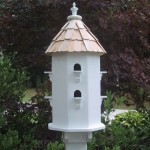Does White Vinegar Kill Plants And Grass?
White vinegar is a common household item that has a variety of uses, from cleaning to cooking. It is also a popular natural herbicide, and it has been shown to be effective in killing some plants and grasses. However, it is important to note that white vinegar can also be harmful to plants and grasses, so it is important to use it with caution.
How White Vinegar Kills Plants And Grass
White vinegar contains acetic acid, which is a corrosive substance. When acetic acid comes into contact with plant tissue, it can cause the cells to break down and die. This is why white vinegar can be effective in killing plants and grasses.
The concentration of acetic acid in white vinegar varies from 5% to 10%. The higher the concentration of acetic acid, the more effective it will be in killing plants and grasses. However, it is important to note that higher concentrations of acetic acid can also be more harmful to plants and grasses.
How To Use White Vinegar To Kill Plants And Grass
If you are considering using white vinegar to kill plants and grasses, it is important to do so with caution. White vinegar can be harmful to plants and grasses, so it is important to use it in a way that minimizes the risk of damage.
The following are some tips for using white vinegar to kill plants and grasses:
- Use a concentration of 5% to 10% acetic acid.
- Apply the vinegar directly to the leaves of the plant or grass.
- Avoid getting the vinegar on the roots of the plant or grass.
- Do not apply the vinegar on a windy day.
- Reapply the vinegar as needed.
Alternatives To White Vinegar
If you are looking for an alternative to white vinegar, there are a number of other natural herbicides that you can use. These include:
- Boiling water
- Salt
- Borax
- Soap
- Dish soap
These alternatives are all effective in killing plants and grasses, and they are less harmful to the environment than white vinegar.
Conclusion
White vinegar can be an effective natural herbicide, but it is important to use it with caution. White vinegar can be harmful to plants and grasses, so it is important to use it in a way that minimizes the risk of damage.
If you are looking for an alternative to white vinegar, there are a number of other natural herbicides that you can use. These alternatives are all effective in killing plants and grasses, and they are less harmful to the environment than white vinegar.

Can Vinegar Kill Weeds Gardening Channel

Does White Vinegar Kill Weeds Why You Should Never Use On Your Lawn Express Co

How To Kill Weeds With Vinegar Easy Recipe And Usage Guide

Dangers Of Vinegar As Weed Rds Lawn Care

A Friend Sent Post From Another Site About Killing Weeds With Vinegar I M Posting The Pix And Part Of Text Hometalk

Unraveling The Myth Will Vinegar Kill Pampas Grass

White Vinegar Weed Big Blog Of Gardening

Does Vinegar Kill Grass Solving The Mystery Once And For All Evergreen Seeds

How To Use Vinegar Kill Weeds Get Green Be Well

Kill Weeds Naturally With Vinegar One Hundred Dollars A Month








